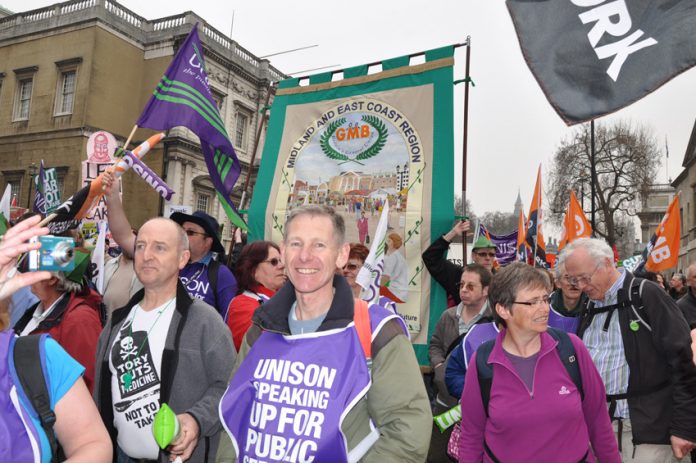
UNISON yesterday called on the government to end the public sector pay freeze, set to stretch for another two years for local government workers – even those earning under £21,000.
A study by Incomes Data Services (IDS) into the three months to the end of April, found wage settlements in the private sector were three per cent.
For public sector workers pay was frozen, with public sector pay settlements continuing to run at zero, for the first time since records began in the 1960s.
Dave Prentis, Unison general secretary, said: ‘Public sector workers are hard hit by the recession. Hundreds of thousands are set to lose their jobs, all are facing an attack on their pensions.
‘Whilst inflation spirals, millions of families are struggling as their pay is frozen.
‘Hitting public sector workers in their pockets is a direct hit on economic recovery. It’s hardly surprising that our economy has shuddered to a halt.
‘The government needs to look to the history books and learn the lessons.
‘Invest in recovery, safeguard jobs and services to give the economy the support it needs to come back to life.’
TUC general secretary Brendan Barber said: ‘Whilst it’s encouraging to see private sector pay awards increase, they are still running significantly below inflation, which reflects the UK’s poor economic outlook.
‘This also shows that real pain is being inflicted on public sector workers. With inflation running high, public sector pay freezes amount to a harsh real-terms cut in wages.
‘By forcing through pay cuts and seeking to increase pension contributions on top of heavy job losses, the government is making public servants the scapegoat for a financial crisis they played no part in causing.’
Unite assistant general secretary, Gail Cartmail, said: ‘This is an unprecedented attack on millions of workers’ living standards.
‘It’s grossly unfair – the public servants that our families rely on, are having to endure real hardship because of the cavalier attitude of the Tory-led government and many councils across the country.
‘The reality is that with inflation over five per cent, millions of public sector workers are getting a pay cut, and some employers like Southampton city council are going further by imposing take-it-or-leave-it new terms and conditions.
‘To make matters worse, the £250 the government promised would be paid to the lowest earners is being refused to the largest concentration of low-paid public sector workers, the majority being women, employed by councils across the country.’
Local authorities are refusing to comply with the government’s commitment to pay the lowest earners £250 because the government has no legal powers to force the local authorities to pay-up, making a sham of the original commitment.